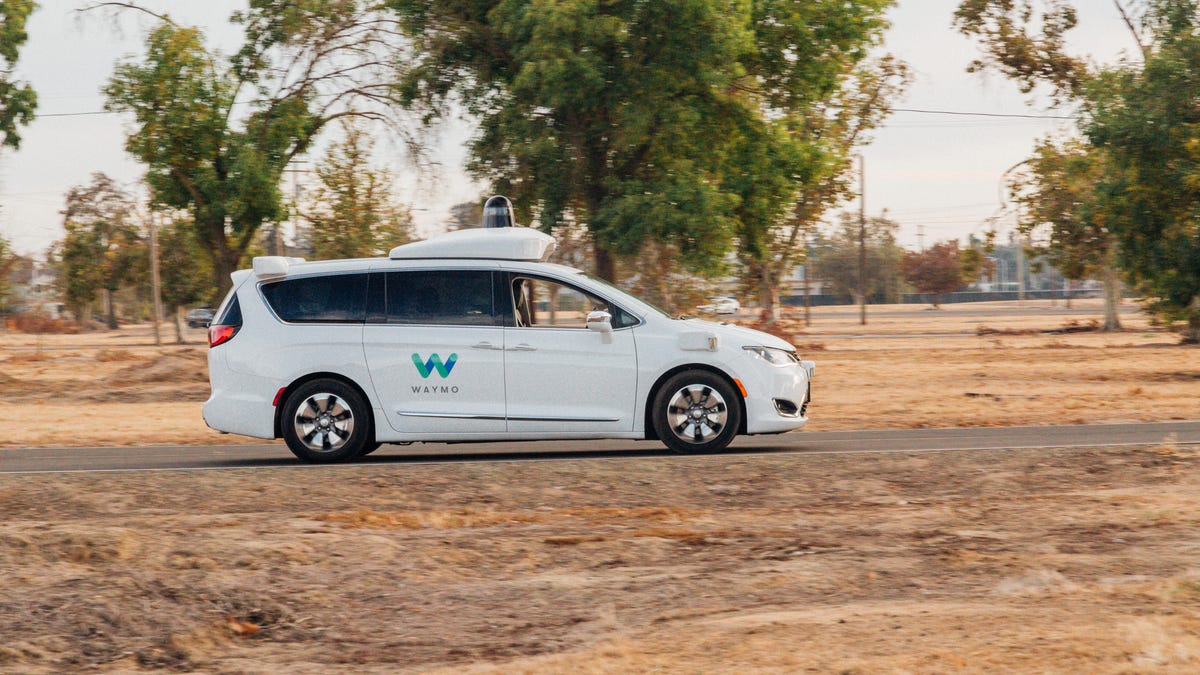Waymo reported fewest AV disengagements per mile in 2018, and Apple had the most
That's good news for one tech giant. Not so much for the other.

It's no secret that Waymo is one of the leaders in self-driving-vehicle development, having the support of Google parent company Alphabet and years upon years of experience. Apple , on the other hand, is a relatively new player in the AV-testing game. That might help explain why these two companies live on opposite ends of the disengagement spectrum.
The California Department of Motor Vehicles on Wednesday published its collection of 2018 disengagement reports, which are required for every company that received a permit to test AVs in California. Disengagements are events where the autonomous vehicle relinquishes control back to its human overseer.
Waymo led the pack of DMV-approved developers with an average of 0.09 disengagements per 1,000 miles driven. Based on how many miles its vehicles drove in 2018, this amounted to more than 11,000 miles driven per disengagement. A quick scan of Waymo's disengagement report shows that many of these disengagement events occurred for "unwanted maneuver of the vehicle that was undesirable under the circumstances," although it had a few that were caused by a "recklessly behaving road user," as well as some object-detection hiccups.
To be fair, Waymo's been doing this just a bit longer than Apple has.
Apple, on the other hand, took the bottom spot with an average of 871.65 disengagements per 1,000 miles driven. Based on the mileage logged in 2018, this comes out to an average of 1.1 miles between disengagement events. The sheer number of disengagements can be seen in just how many PDFs the DMV had to upload, each of which contains 500 pages.
Even with the DMV's reporting requirements, there's a lot of flexibility for how descriptive a company can be in its reports. Apple also had some of the least descriptive disengagement events, chalking them up to reasons like "manual takeover" and "controls." By comparison, Zoox offered descriptive reasons for disengagements, such as "Prediction discrepancy, system indicated incorrect yield trajectory for vehicle exiting intersection."
Of course, an apples-to-Apple comparison isn't possible with these reports. All these vehicles are on routes of varying difficulty, and some fleets are much larger than others. A team like Zoox may have the third-best disengagement ratio, but a quick browse of its report shows that it drove upward of 30,000 miles in 2018, a far cry from Waymo's 1.26 million miles. Nevertheless, the report might shine some light on why Apple's project has remained awfully secretive up to this point, while a group like Waymo is content to roll around in the spotlight.
Self-driving cars: Keep up on all the AV news you can handle.
Auto tech: Do you like tech? Of course you do, that's why you're here.

